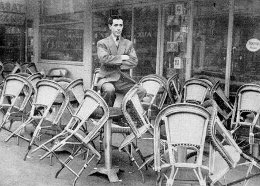Reuters carried this report on :
Chavez foes tear up tax forms
Foes of Venezuelan President Hugo Chavez tore up income-tax forms on as they added a national tax revolt to their five-week-old strike that has throttled the nation’s crucial oil exports.
Waving Venezuelan flags and blowing whistles, thousands of anti-Chavez demonstrators marched to government tax offices in east Caracas on the 37th day of an opposition strike aimed at forcing the leftist leader to resign and call early elections.
The grueling shutdown has strangled oil output and shipments by the world’s No. 5 petroleum exporter.
“We are not going to pay taxes until this government goes,” 52-year-old housewife Belkis Soto said as she took part in the march. Many protesters waved tax declaration forms, which they then ripped up outside the tax offices.
The disruption to Venezuela’s strategic oil industry has jolted world oil markets and bled the Chavez’s government’s economic lifeline, costing it millions of dollars a day.
The opposition has called on individuals and firms to stop paying taxes, whether income or sales taxes.
But the strike has so far failed to force Chavez to bow to opposition demands for him to quit. The populist president, a former paratrooper who led a coup attempt in and was elected president , has dug in his heels, vowing to break the strike and survive.
Speaking on at a school in west Caracas, Chavez accused his foes of “trying to break the state coffers.”
“With the oil strike, we’re going to start the year with a lot of economic difficulties,” he said, without elaborating.
He warned opponents they would be breaking the law if they refused to pay taxes. Tax authorities say offenders face fines and prison terms ranging from six months to seven years.
Some analysts questioned the impact of a tax rebellion in a nation where tax evasion is widespread.
Tensions high
Tensions have been running high since anti-Chavez demonstrators clashed with supporters of the president in fierce street battles on also involving troops and police. Two Chavez supporters were shot and killed, triggering accusations between the government and its foes, who blame the president for the killings of opposition protesters last year.
Chavez, who survived a short-lived coup in , has condemned the strike and the tax rebellion as the work of “traitors” and “terrorists.” He accuses his foes of trying to overthrow him in another coup.
His opponents say the left-wing policies of his self-proclaimed “revolution,” which include a nationalistic oil policy and increased state intervention in the economy, are dragging the country toward ruin and Cuban-style communism.
The strike gripping the oil industry has disrupted oil shipments to the United States, which normally obtains more than 13% of its crude imports from Venezuela.
But oil prices, which rose close to two-year highs last week, fell heavily on as leading OPEC heavyweight Saudi Arabia pushed the oil exporters’ cartel for a hefty oil output increase to fill a gap left by the Venezuela strike.
London Brent lost 51 cents to $US29.69 a barrel by late afternoon. US crude fell 98 cents to $US30.92 a barrel.
The government insists strike-hit oil operations are being restored to normal. Striking executives in the state oil giant PDVSA, many of whom have been fired, deny that.
Potentially adding to the problems from the oil strike, which has caused shortages of gasoline and cooking gas, Venezuela’s bank workers said they would decide on a proposed 48-hour halt to all banking operations.
Many major industries and shops remain closed and many private schools and universities are not starting classes.
The opposition is setting its sights on a referendum scheduled by electoral authorities to vote on a single question: should Chavez voluntarily resign?
But the poll is nonbinding, and the president, whose term is scheduled to end in early , has said he will ignore the results, even if he loses massively.
Talks between the government and the opposition, brokered by the Organization of American States, have so far failed to agree on the timing of elections.
Chavez tells his foes they must wait until after , halfway through his current term, when the constitution allows the holding of a binding referendum on his rule.
The anti-Chavez unrest that the article alludes to had been going on , but this tax strike was more of a “last hurrah” than a real escalation. The strikes and other civil disobedience petered out and the opposition focused on holding a binding referendum to remove Chavez from office. This recall referendum was held in , but it lost, and Chavez continued to cement his hold on political power.


